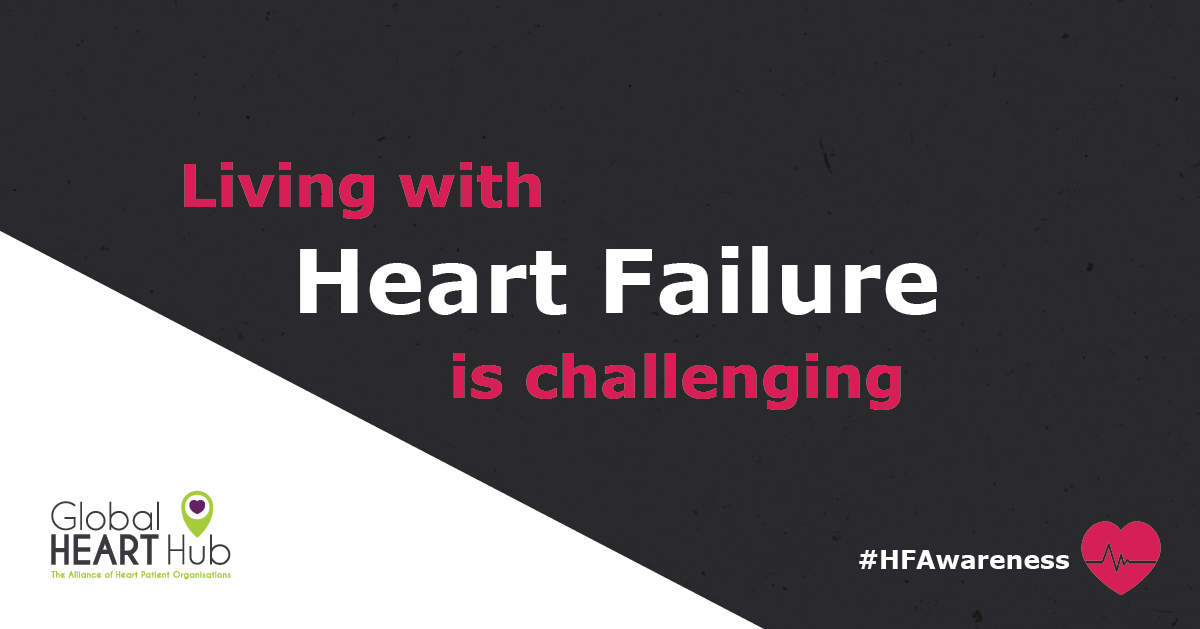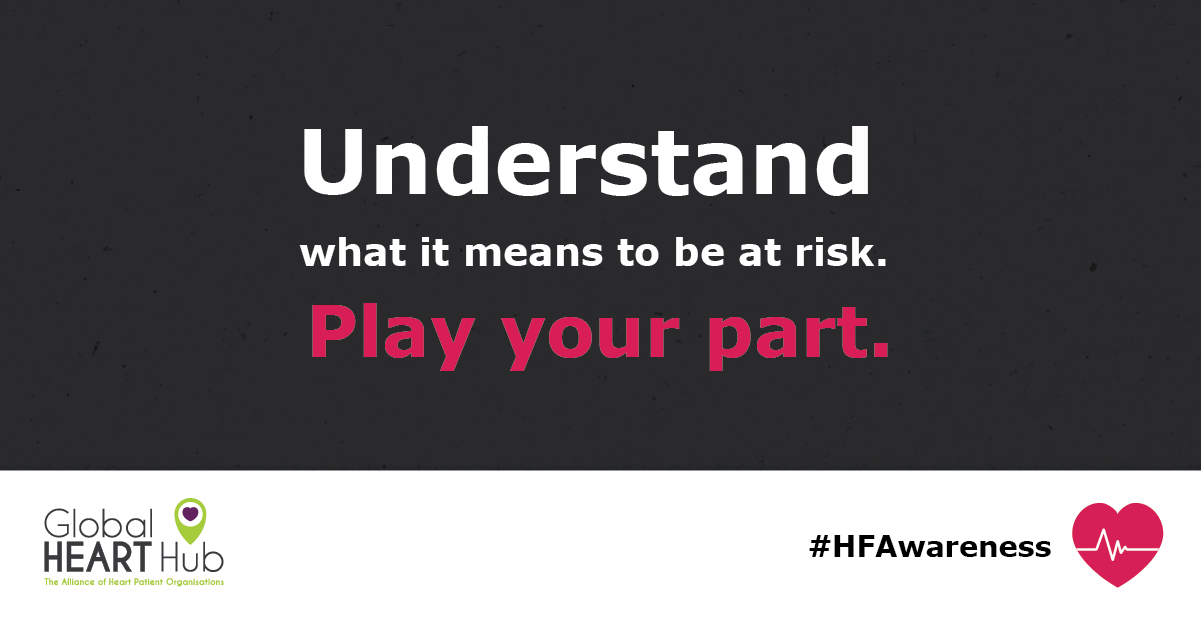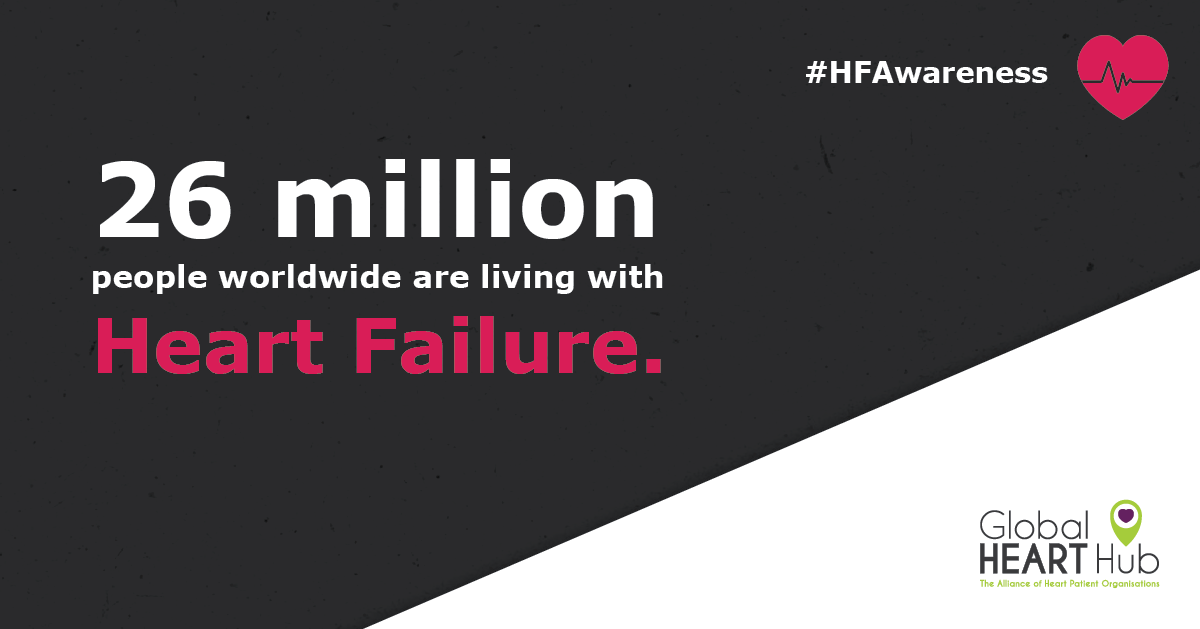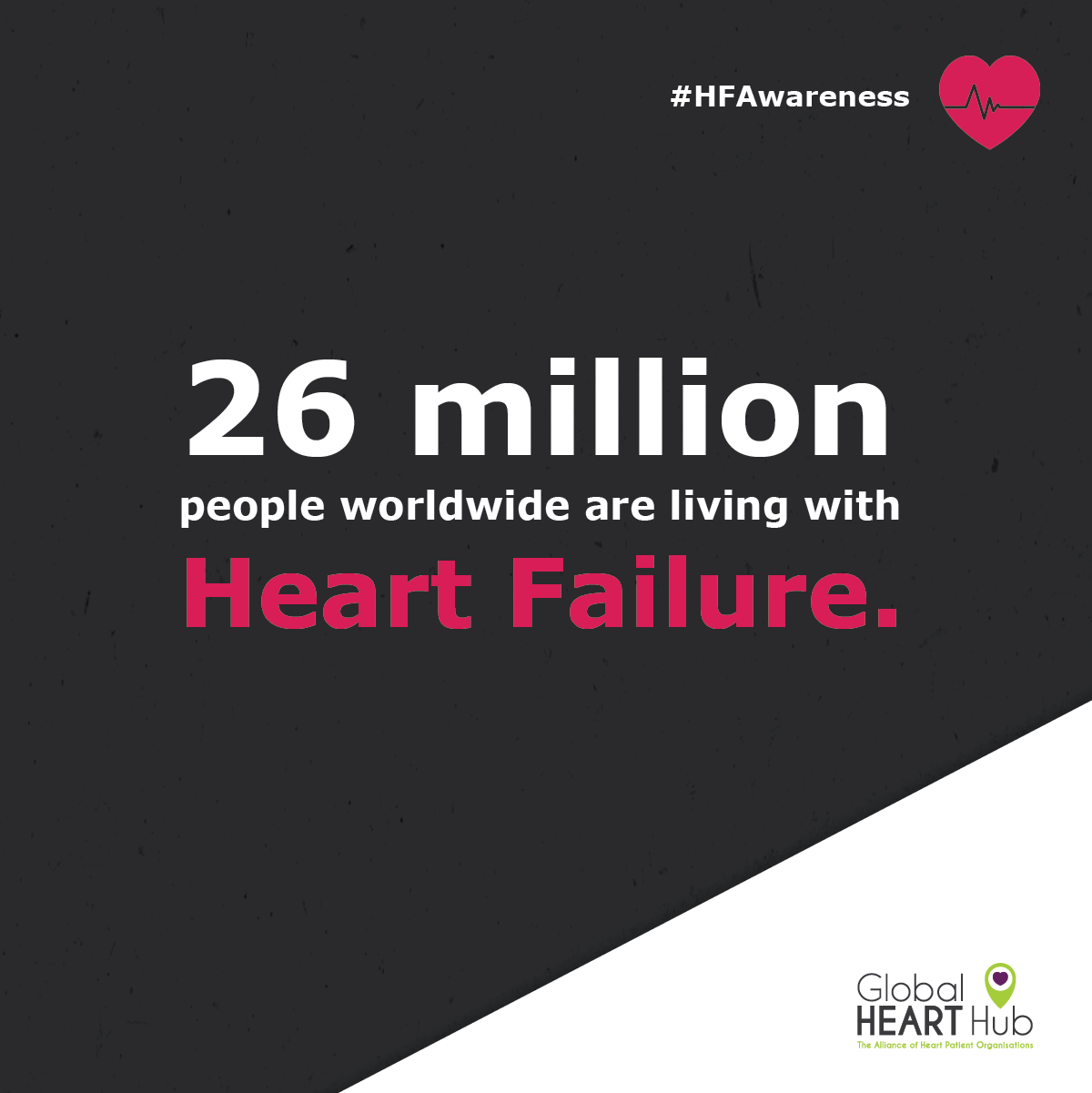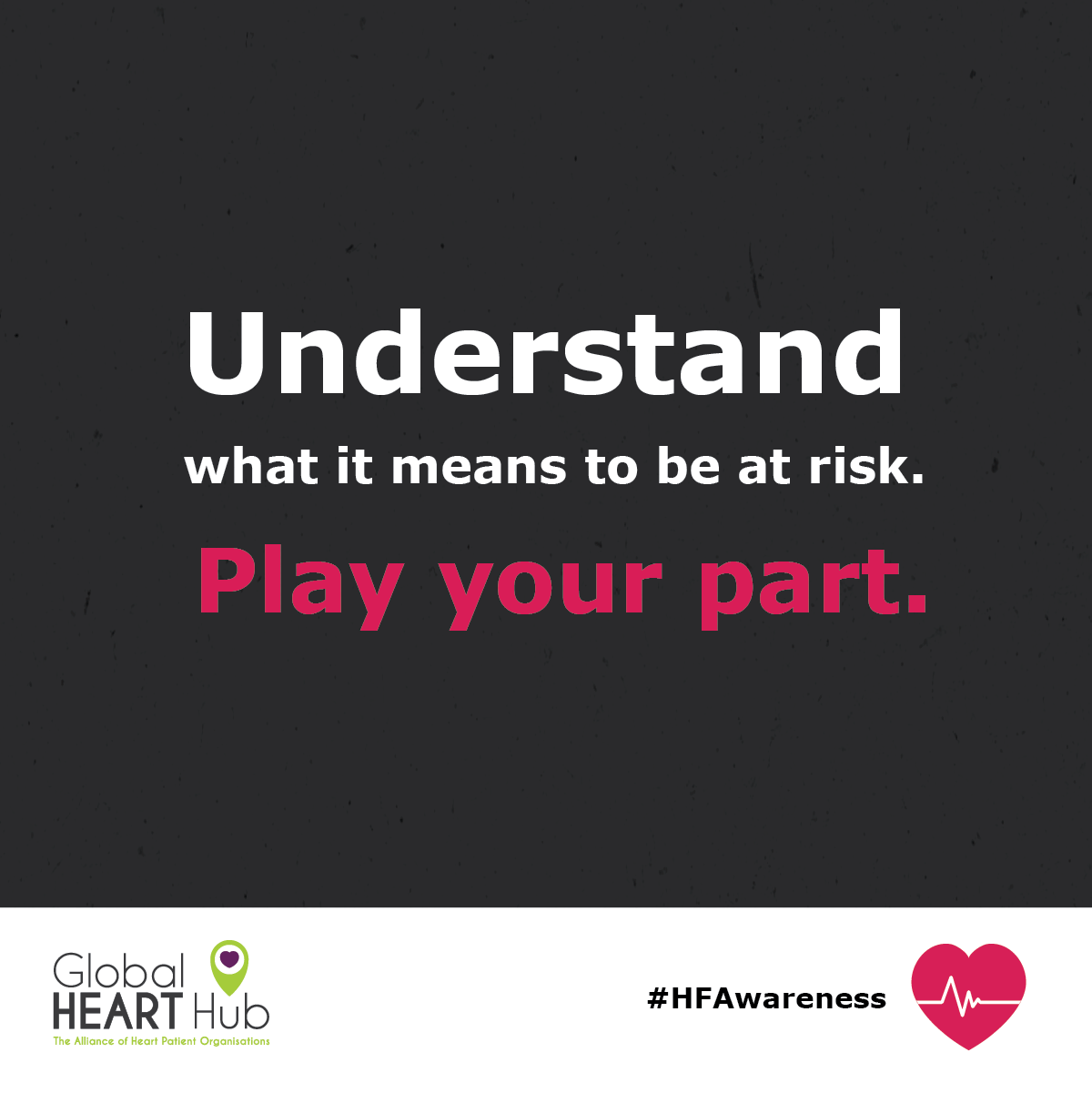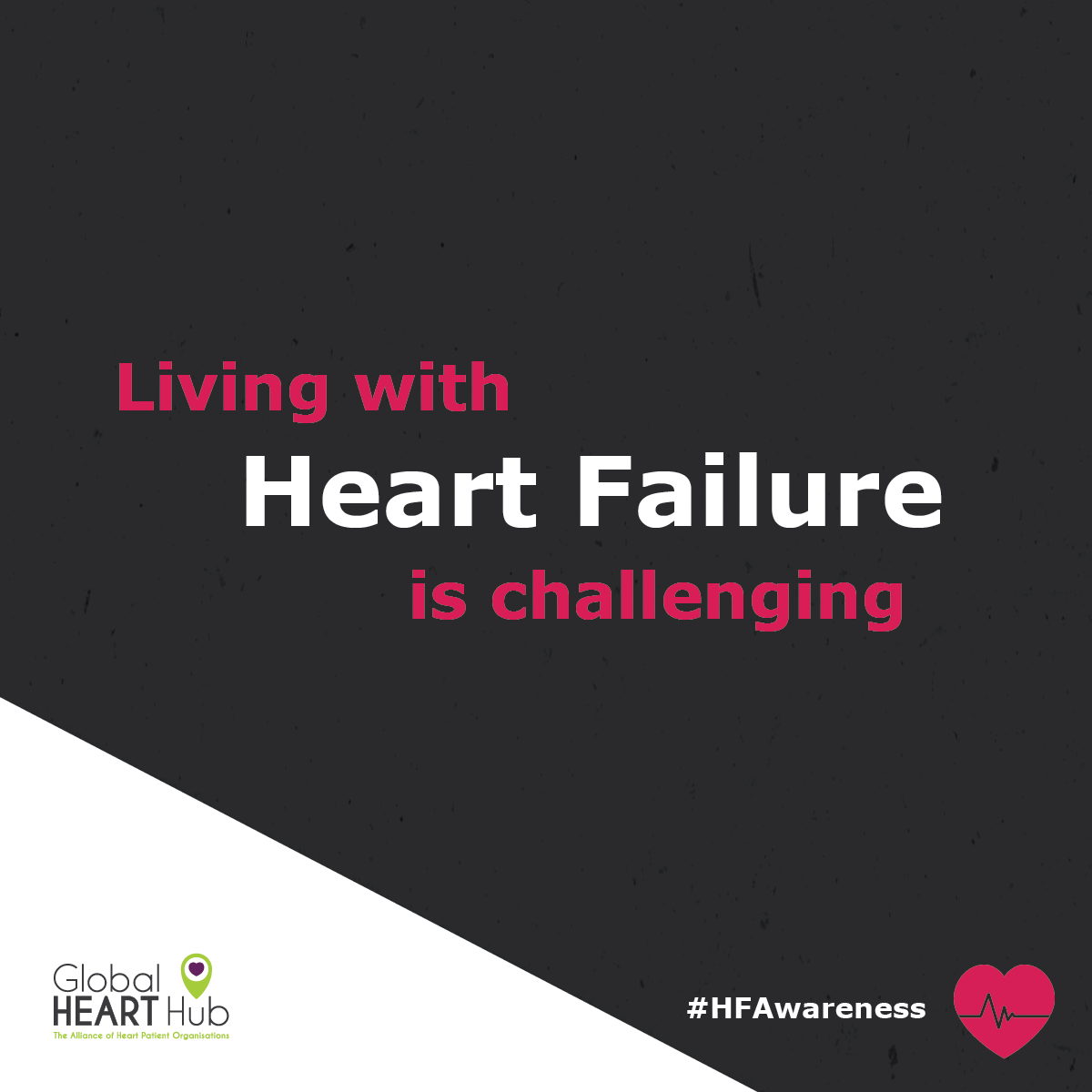
Living with Heart Failure is challenging, more so now than ever before. This campaign aims to raise awareness of heart failure, and highlight the importance of understanding the needs of those most vulnerable to the coronavirus.

Download our social media cards:
PDF Templates (zip file, 99MB) | PPT Templates (zip file, 1MB) | JPG Templates (zip file, 9MB)
26 million people worldwide are living with Heart Failure
Few know what it is… most don’t.
Living with Heart Failure is challenging.
Understand what it means to be at risk
Play your part. #HFawareness
Share the message:
FR
LV
BP
CZ
AR
PL
DE
ES
LT
ES-419
IT
NL
Why creating awareness about Heart Failure is so important
Heart failure is a serious chronic condition where the heart cannot pump enough blood to support the needs of other organs in the body. The most common causes of heart failure include coronary heart disease, myocardial infarction (heart attack), congenital heart defects, or damaged heart valves. Symptoms include breathlessness, fatigue and swollen limbs. It is estimated that 1 in 5 people are at risk of heart failure and it is the most frequent cause of hospitalisation in people over the age of 65.
Play Your Part and Protect Yourself and People Living with Heart Failure
COVID-19 presents the world with an unprecedented public health challenge. Its rapid spread has caused significant alarm and disruption across the globe. Understandably, those living with heart failure are anxious and concerned.
Please play your part and follow the public health advice to reduce your chances of being infected or spreading COVID-19:
- Regularly and thoroughly clean your hands with an alcohol-based hand rub or wash them with soap and water.
- Maintain at least 1 metre (3 feet) distance between yourself and others.
- Avoid going to crowded places.
- Wear a fabric face covering if there is widespread community transmission, and especially where physical distancing cannot be maintained.
- Avoid touching eyes, nose and mouth.
- Make sure you, and the people around you, follow good respiratory hygiene.
- Stay home and self-isolate even with minor symptoms such as cough, headache, mild fever, until you recover. Avoiding contact with others will protect them from possible COVID-19 and other viruses.
- If you have a fever, cough and difficulty breathing, seek medical attention.
- Keep up to date on the latest information from trusted sources, such as WHO or your local and national health authorities.
Know The Symptoms of Heart Failure
Heart failure can affect different people in different ways. Symptoms can come on suddenly and be initially severe (acute heart failure) or they can appear over time and gradually get worse (chronic heart failure). If you have heart failure, you may have one, or a combination, of these symptoms. The more common symptoms of heart disease are:
- Coughing/wheezing
- Extreme tiredness or no energy
- Loss of appetite
- More frequent urination, especially at night
- Rapid heartbeat or palpitations
- Shortness of breath
- Shortness of breath, even when lying down
- Swelling in the ankles/feet/stomach
- Weight gain over a short period of time (>2kg over 2 days)
By themselves, any one sign of heart failure may not be cause for alarm. But if you have one or more of these symptoms, even if you haven’t been diagnosed with any heart problems, you should visit your GP and ask the question “Could I have heart failure?”.
Get Involved
To join the campaign or for more information, please email info@globalhearthub.org
Campaign Partners
The awareness campaign is led by the Heart Failure Patient Council of the Global Heart Hub. The Heart Failure Patient Council is an alliance of patient organisations from across the globe, working with heart failure patients and their carers. A priority of the council is to raise awareness of heart failure, promote public and healthcare education and advocate for policy action in an insufficiently recognised and increasingly burdensome disease area.
Supported by:






